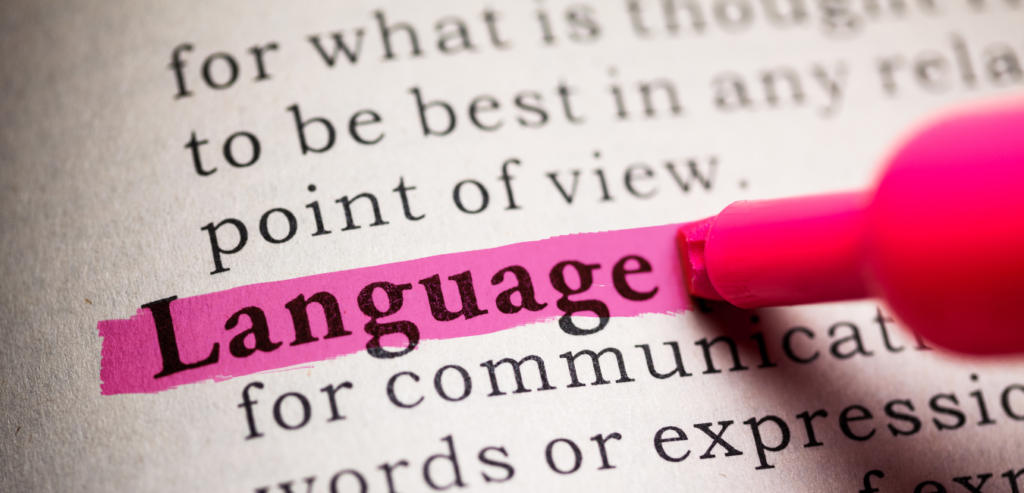
Those of you who have attended our effective court report writing training you will be familiar with the need to use clear understandable language in court documents and when communicating with parents, prospective carers, or service users. This is vital as parents/carers/service users being assessed need to understand:
-the evidence against them or
-the risks that have been identified that may place their child at risk of harm, or
-what is required of them to make changes or
-what is required of them to protect the child from the risks identified.
Clearly, they are not going to be able to any of the above if complex and professional language is used that they may not understand, or find difficult to understand.
The need to use plain understandable language was highlighted by the Judge in the case of Derbyshire County Council v SH [2015] EWFC B102. You can read more about this case by clicking on our previous legal blog which can be found here: https://www.kingsleyknight.co.uk/social-workers-beware-no-jargon-use-plain-language/
We were therefore pleased to come across the judgement of DJ Hesford (now HHJ Hesford in the case of A Borough Council v N & Ors [2022] EWFC 91.
The judgement can be read by clicking here
The Judge uses plain language in the judgement following the granting of a care and placement orders in respect of 2 children aged 4 and 2 years old. Immediately following the hearing, the Judge very helpfully provided a judgement, written directly and for the benefit of the children’s mother.
The judgement explains the reasons for the Judge’s decisions and details that it would be usual for him to provide a much longer and a more complicated judgement, however by agreement, the Judge explains that he is going to use straightforward language, and keep the judgement as short as possible.
The Judge’s rationale for creating a judgement in this way was to make it simple for the mother to understand and to help the mother’s lawyer and intermediary so that when they go through the judgement with the mother that she may understand it.
The Judge also uses helpful and simple subheadings such as:
- What the case is about
- Who is everybody
- The background
- What does everyone say
- What I have to decide today
- Do I need any more information before I decide
- What I think of the evidence
- Realistic options
- Welfare checklist
- My decision
- Contact
- Other important things
Under the heading What does everyone say, the Judge details in clear understandable language the risks to the children.
- The social workers say that N can be very angry at times and loses her temper. The police have been involved. N also finds it hard to keep her house clean and tidy. This could be harmful to the children and this will not be safe for X and Y. They also say that mum doesn’t really understand the worries that the social workers have about her. They think it will be too hard for her to care for X and Y.
- They say that the children have suffered from different sorts of harm, including some injuries as they were not being looked after properly and also some emotional harm as they were seeing people who were not good for them. They also say that mum does not work honestly with the social workers all the time and does not listen to good advice.
- They say that there is no more support that can be given to N that would make things safe and better. They say they have tried everything that they could.
The Judge also includes positive aspects of the mother
- I think that N has done the very best that she can for X and Y. She has been good at going to contact and the contact has been very nice for everyone. She is warm and loving. I know that she loves X and Y very much and they love her too. She is a lovely young woman.
This is a very good example of a judgement that social care practitioners can consider in terms of style and language if you are supporting or working with a parent or service user who may have learning disabilities.
How we can help
We are specialists in providing legal and social care training. If you require bespoke and practical skilled or legal training on writing court reports or statements or related subjects, please contact us for a no-obligation discussion of your training needs.
Copyright: The content of this legal briefing is the copyright of Kingsley Knight Training. It can be printed and downloaded free of charge in an unaltered form temporarily for personal use or reference purposes. However, it is prohibited for any content printed or downloaded to be sold, licensed, transferred, copied, or reproduced in whole or in part in any manner or in or on any media to any person without the prior consent of Kingsley Knight.
Disclaimer: The contents of this guide are for information and are not intended to be relied upon as legal advice
